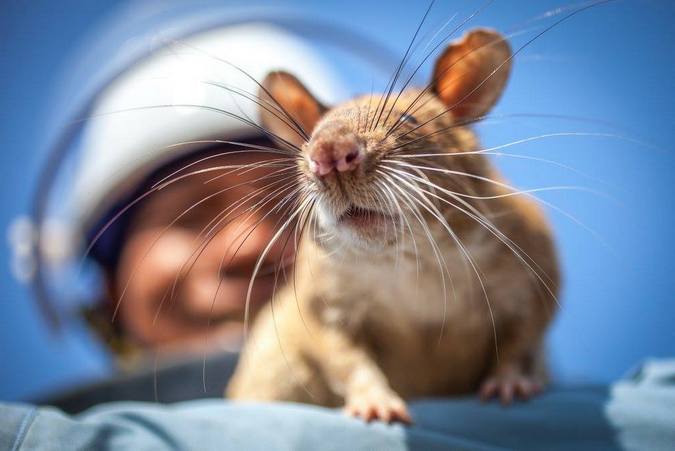
Written by Ayo Gospodinova
The pangolin, the world’s most trafficked animal, might have just found a new best friend – the African giant pouched rat (Cricetomys gambianus). Also known as the Gambian pouched rat, there are currently around a dozen of these rodents that are being trained at a research centre in central Tanzania to detect the smell of poached pangolin parts in shipments heading from Africa to Asia.
The Anti-Personnel Landmines Detection Product Development Organisation, or APOPO (Anti-Persoonsmijnen Ontmijnende Product Ontwikkeling), have been training these scent-detecting rats, nicknamed ‘HeroRATs’, for the past 20 years to detect land mines.
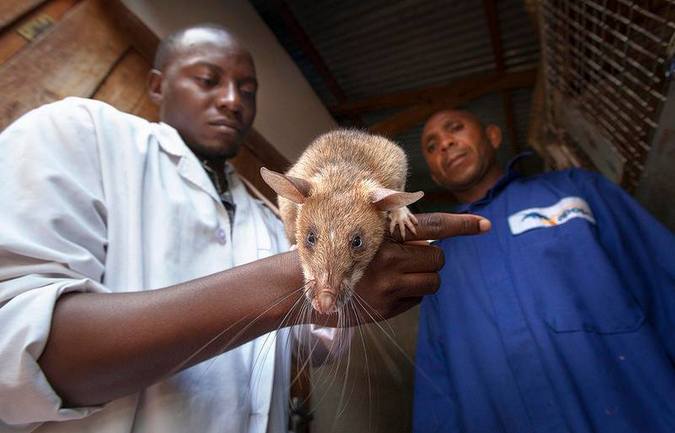
APOPO’s rats have successfully managed to locate more than 100,000 land mines in former war zones in Africa. In addition, they are also able to detect tuberculosis in sputum samples from patients in Tanzania and Mozambique.
This is why APOPO, with funding from the US Fish and Wildlife Service, decided to start training rats to save pangolins from the brink of extinction, as there is a great demand for these scaly anteaters. Pangolin body parts are sold mainly in China and Vietnam as a delicacy, and are used for their so-called mythical healing properties. However, the hard scales of the pangolin are actually made of keratin, which is the same fibrous protein found in our nails and hair.
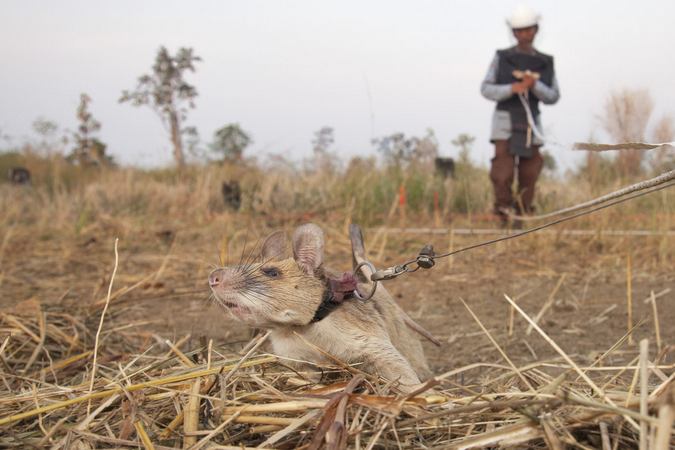
In order to begin the training process, the rats are first weaned from their mothers and introduced to their trainers when they are around five to six weeks old. After adapting to the sights, sounds and smells of the human world, the rats are trained using classical conditioning, also known as Pavlovian conditioning.
The rat will hear a clicker (that it has come to associate with receiving a reward), and is then motivated to carry out the trained action, such as searching for a target scent. Once it locates the target scent it is rewarded with a treat – usually bananas or peanuts.
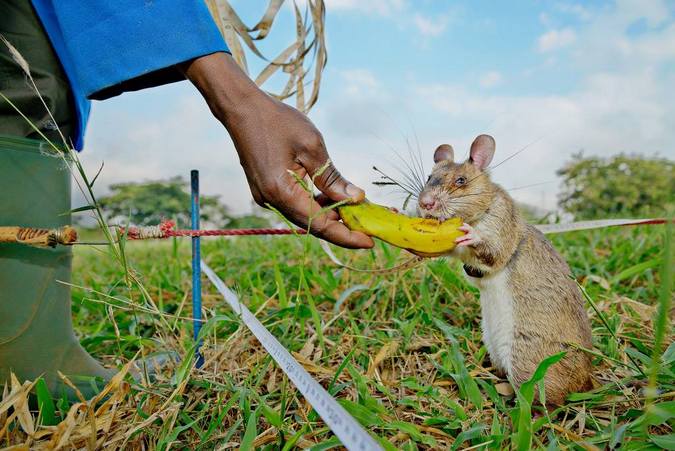
Compared to dogs – that are also used to detect illegal wildlife products – the advantage of using rats is that they can reach parts in shipping containers that dogs cannot. The organisation believes that someday these rats will also be able to detect smuggled elephant ivory and rhino horn products.
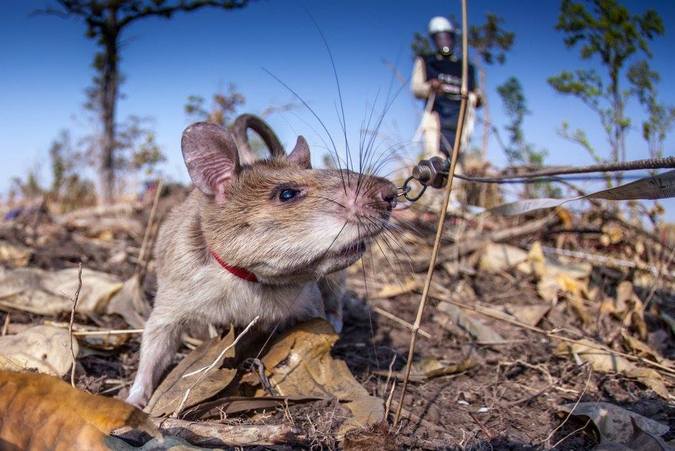
Find out more about these HeroRATs in the video below:
https://www.facebook.com/UnitedForWildlife/videos/1546705638781161/?hc_ref=ARSEMAKYVsyV4X1GVDf57TRRDFWMa2ZG5OZEYwOORGemWAvKUkFYnoczQWZ2nTucfuI
To comment on this story: Login (or sign up) to our app here - it's a troll-free safe place 🙂.![]()






